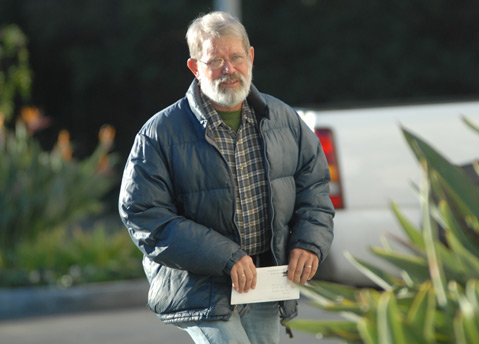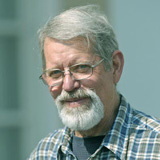Unexpected Kindnesses in Prison
Though Rarely, Humanity Breaks Through and Shines a Brilliant Light

JUNE 27, 2016: There is more than one side to prison. The environment in prison is harsh; racial divisions, testosterone-driven tensions, marginal food, dysfunctional culture, all combine to create a kind of darkness. But prison is also a place where random acts of kindness or humanity, though somewhat rare, break through and shine as a brilliant light in that darkness, taking on a greater impact and producing a higher degree of gratitude than they might in life outside. Here are a few examples:

Sitting on my plastic stool in the corridor outside my cell about a week after my arrival, I was reading a trash novel that I had found lying around. I was admittedly huddled against the incessant cold when another inmate approached me to say he noticed I was shivering. “I have an extra sweatshirt if you would like it.”
I declined the offer not knowing him well and aware that gifts in prison often come with strings attached.
“No, really, I haven’t worn it since I had it washed, and I have another. Why don’t you take it?”
The chill air won out over my paranoia, and I accepted his offer. I’ve worn that sweatshirt nearly every day since, and the first week I thanked him multiple times a day for the comfort it has brought me. This gift came from a man who has been ostracized by the other inmates. He has never asked me for anything in return for his kindness.
When I first entered the prison, I was processed through a receiving department where I was fingerprinted, had my mug shots taken, and was taken up to my unit carrying a sheet, two tattered blankets, and a hand towel — olive green, similar to a dish towel. A couple of days later when I was beginning to acclimate to my new surroundings and wanting to take a shower, I asked another inmate where one got a towel.
He responded: “Didn’t they give you a towel when you came in?”
“No,” I said, “only a hand towel.”
“That’s your towel,” he replied. “They stopped giving out bath towels three months ago.”
For the next month I finished each shower by drying off halfway, wringing out my little hand towel, and then finishing “drying off.” One day an inmate with whom I had never spoken (a “South-sider”) approached me and asked if I wanted his bath towel. He had obviously been here more than three months.
“I hate to take your towel,” I responded.
“It’s okay,” he said with a smile. “I’m leaving today!” He had remembered overhearing my conversation from a month before and apparently had decided then to gift me with his towel when he left, even though I wasn’t a “South-sider.” It was a final act of kindness before he returned to the real world.
Visits from family or friends are without a doubt the most blessed events in prison. Even other inmates who don’t have anyone to come and see them seem genuinely happy for me when I get called out for a visit. Sometimes when returning, even men I don’t know ask me how my visit was, as if to receive some joy vicariously.
Having mentioned in passing to one of the men that I was expecting a visit from my wife and children on Saturday and that I wished I looked a little less disheveled, I was approached a day later out of the blue by a black inmate. The man was huge and had a body like Rambo. He said that he had been a barber on the outside (granted almost 10 years ago), and he would be happy to “clean me up” for my visit.
It turns out that before he had come to our unit, he had been on another floor and the cellmate of my friend and other codefendant, David, who is from Kenya. Both being black, they had shared a cell. When the clippers arrived on our rec deck, he called me out and gave me a meticulous haircut. He seemed to have no hesitation: a black man cutting a white man’s hair in full view of the other inmates. He never asked me for any compensation for his act of kindness but literally beamed when I told him that it was (for various reasons) the best haircut I had ever had. He was just happy I would look good for my family.
Kindness has the ability to break through even the thickest walls and cross the widest divisions. And the human heart has the ability to survive even the most dehumanizing of environments. Prison can be viewed as a microcosm of our world, although admittedly more intense. We all have choices between accepting the harsher and darker aspects of the culture in which we live or breaking through that darkness with the light of some act of kindness, even if there is a risk involved. Maybe the culture will never change. But we can choose to live differently within that culture if we are willing to accept the consequences. And if choices like that can happen here, they can happen anywhere.
Dennis Apel is serving four months in the federal Metropolitan Detention Center in Los Angeles, having been found guilty of crossing the “green line” during peaceful protest at Vandenberg Air Force Base, and then refusing to comply with supervised probation.



